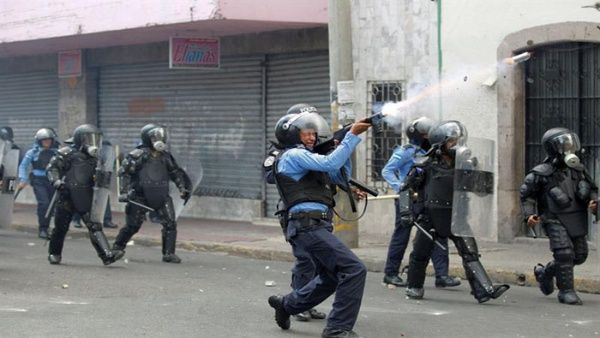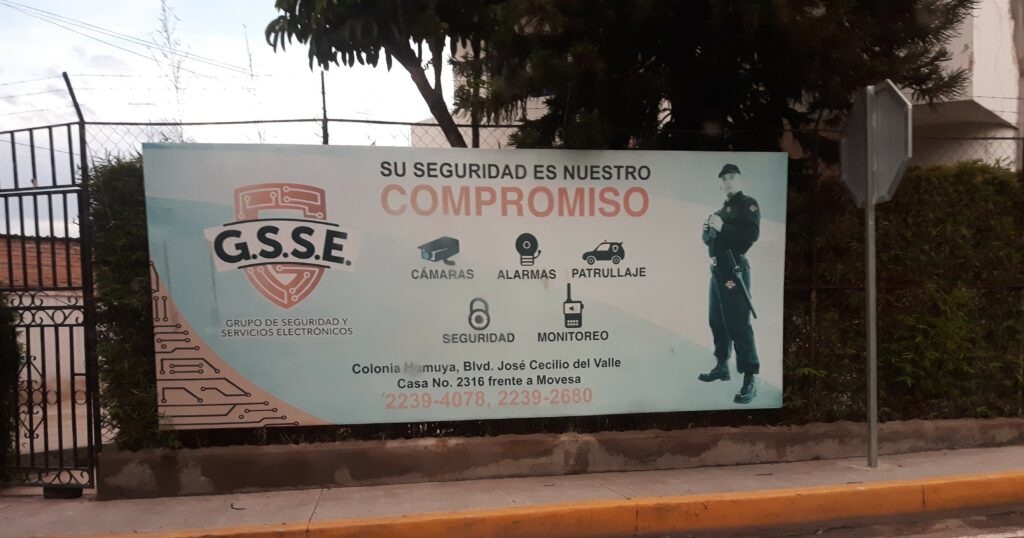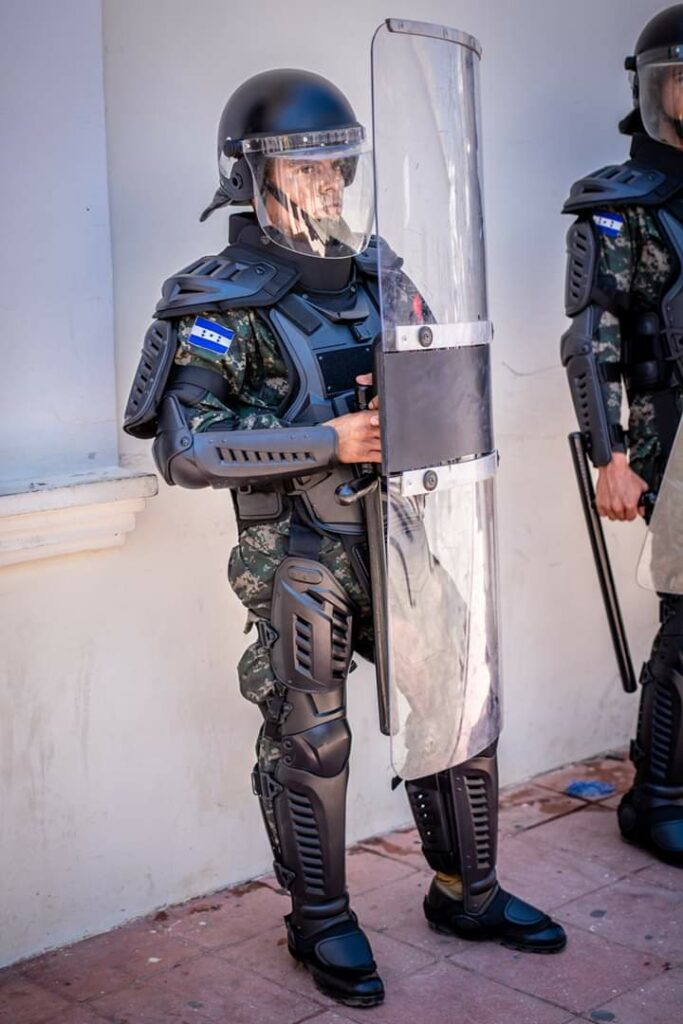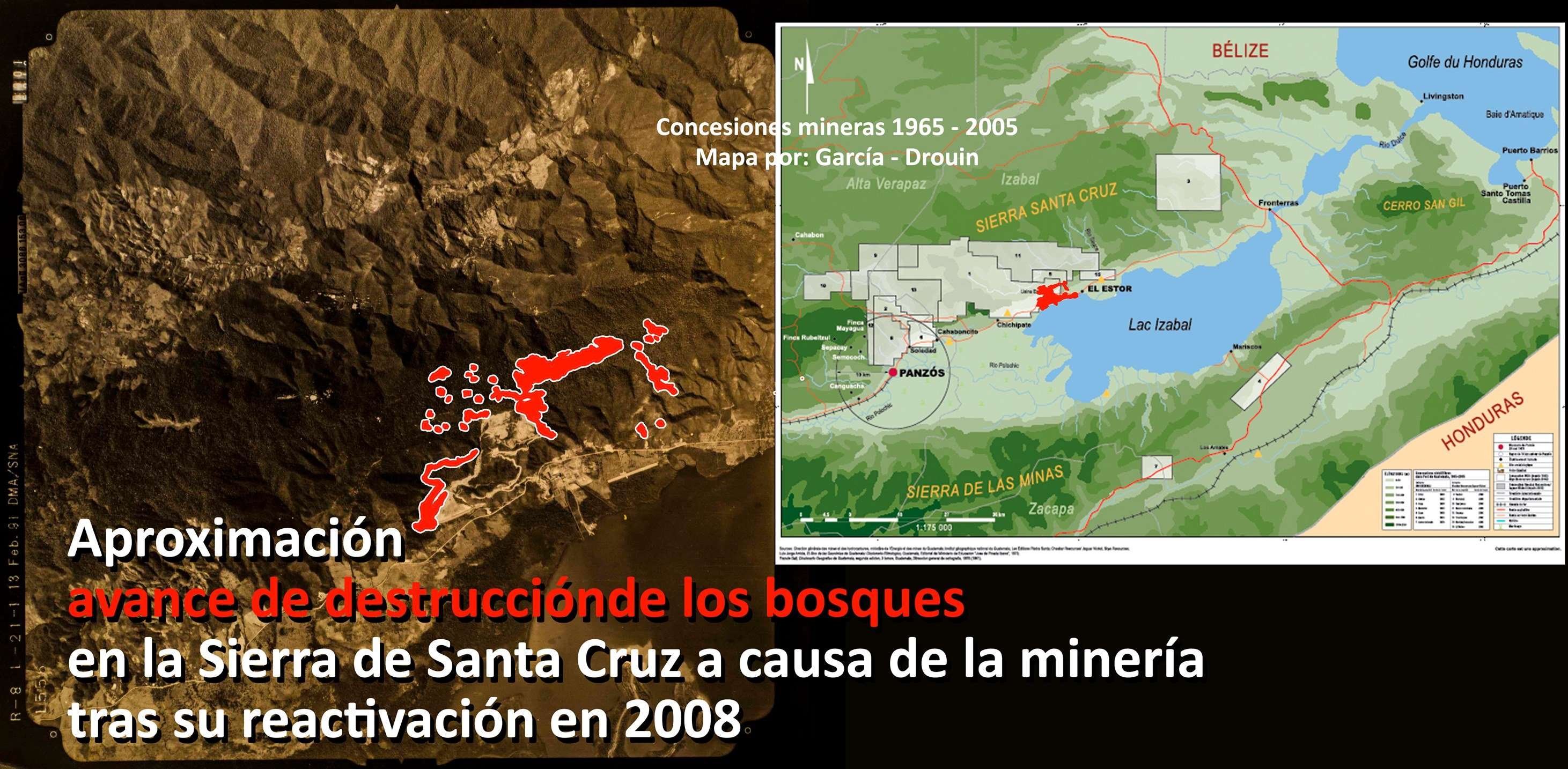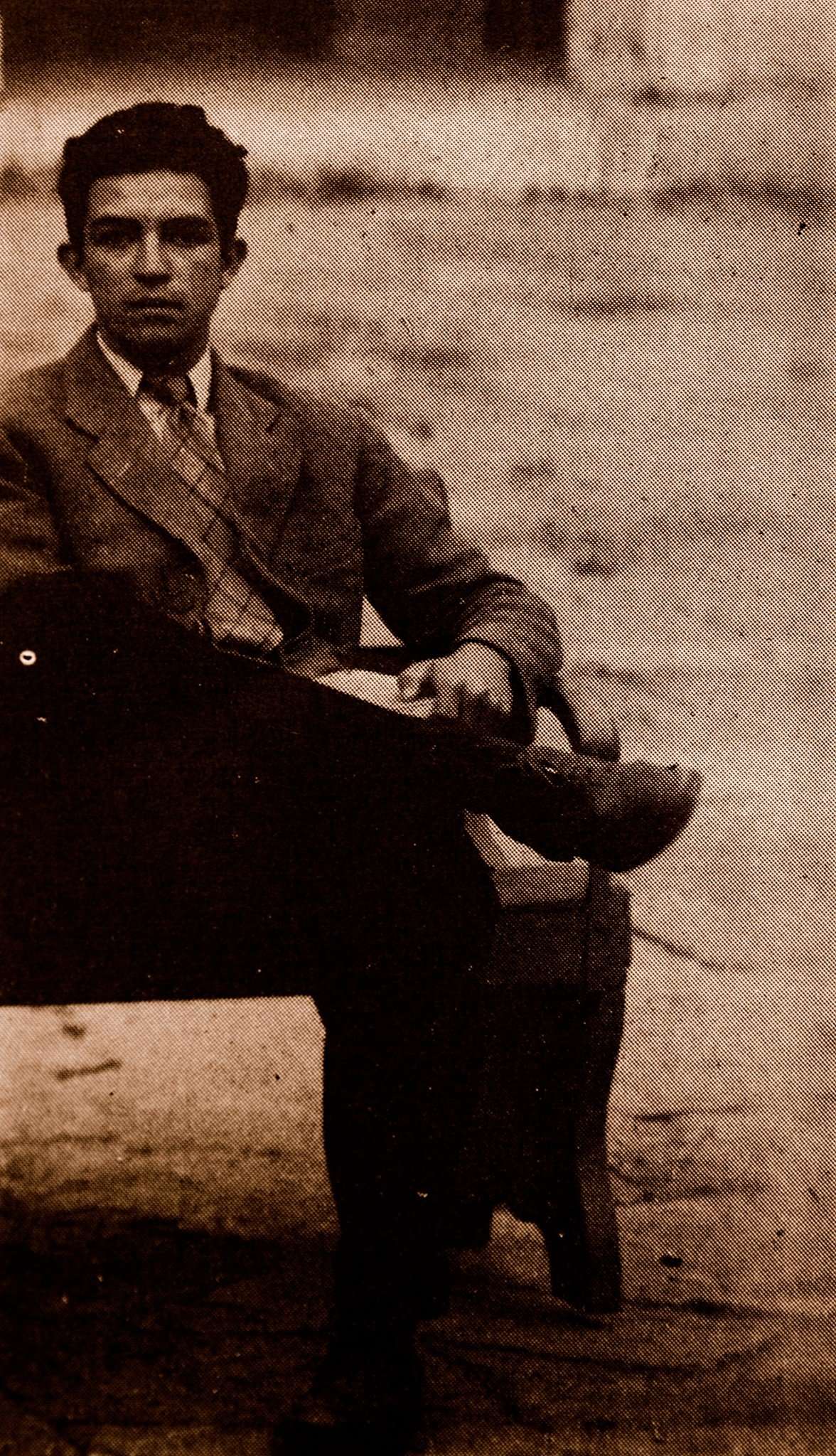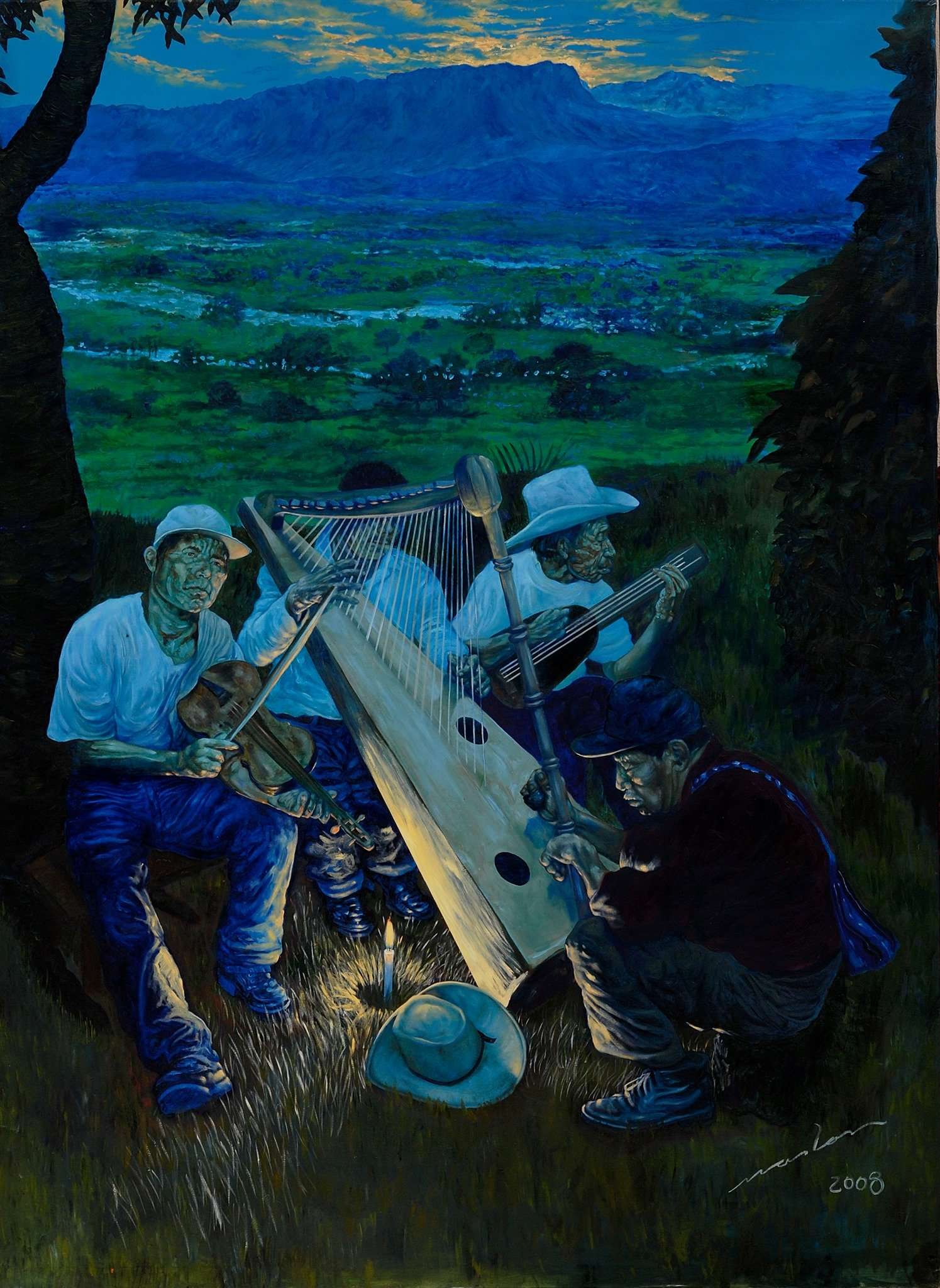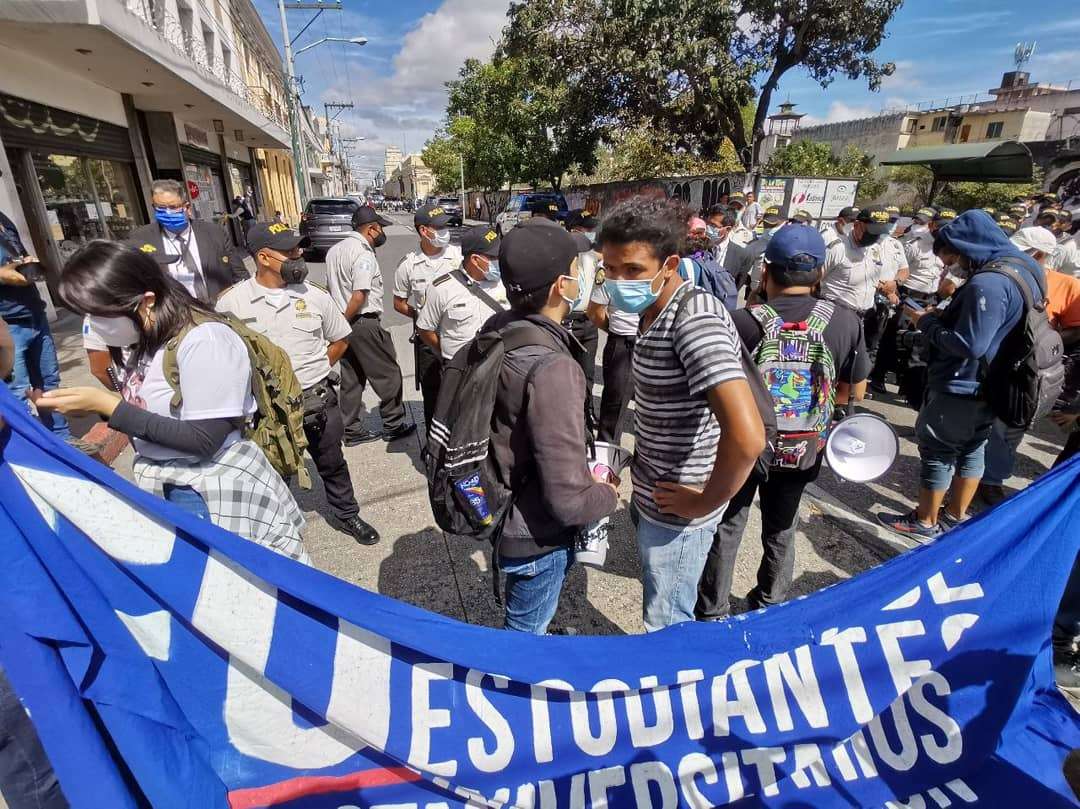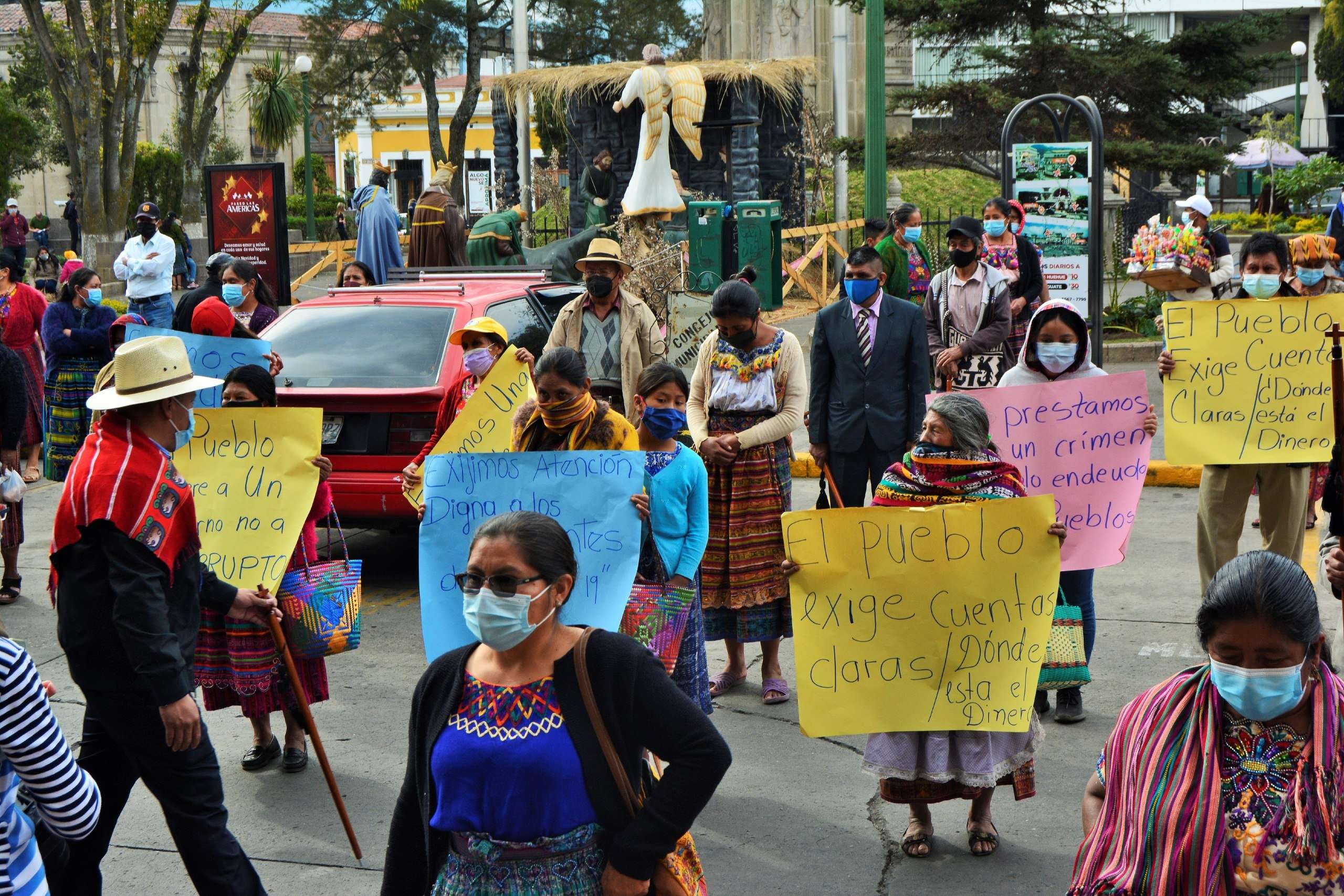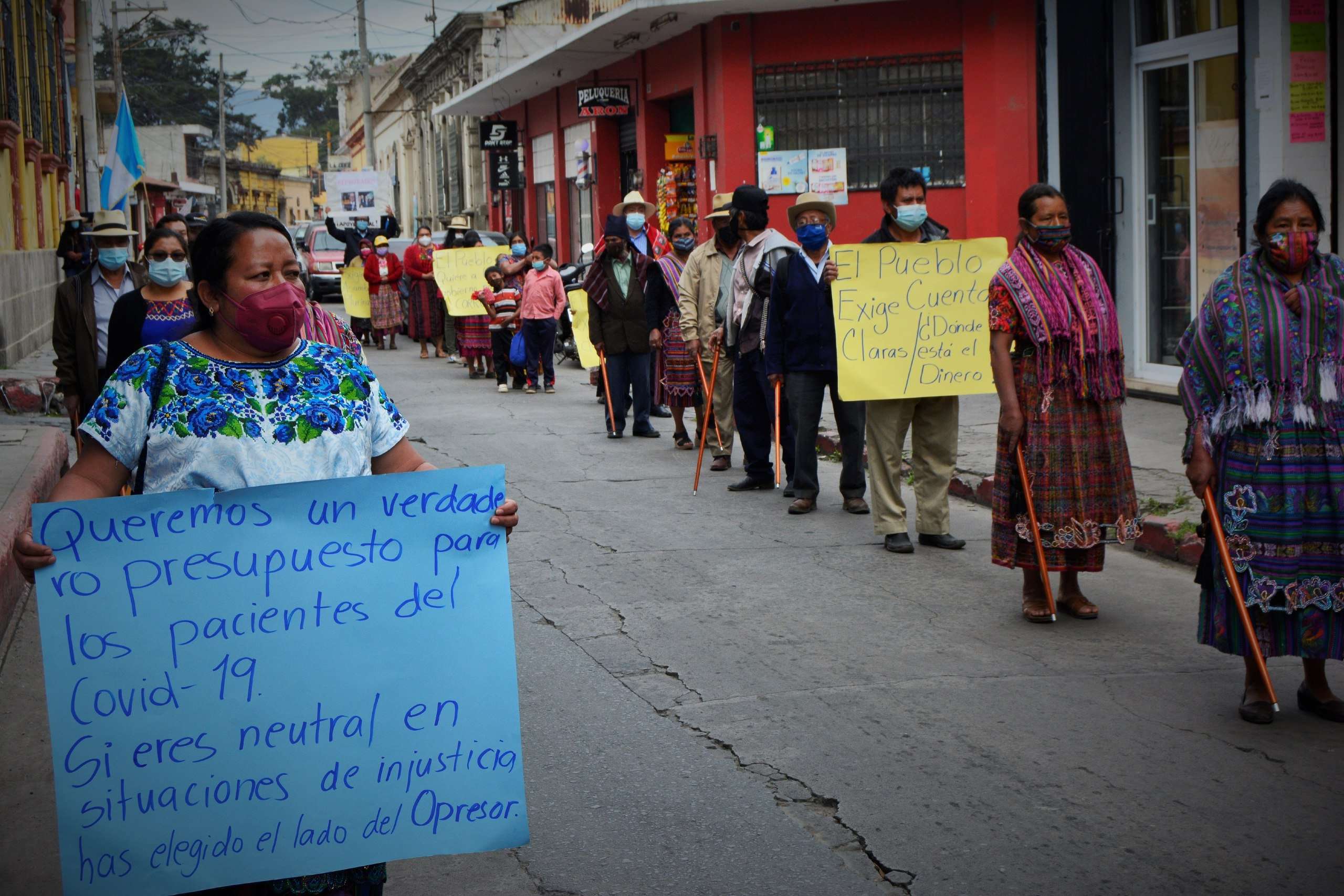
militarización

(Español) México refuerza militarización en frontera sur en respuesta a nueva caravana migrante
Por Aldo Santiago
Ante el avance de una nueva caravana migrante procedente de Honduras, el gobierno mexicano decidió reforzar la militarización de la frontera sur con Guatemala. Con ello, México busca impedir el tránsito a miles de personas quienes salieron desde San Pedro Sula con dirección hacia los EEUU el pasado 15 de enero.
Como parte del operativo fronterizo se ha registrado el despliegue de cientos de funcionarios del Instituto Nacional de Migración (INM), así como soldados de la Secretaría de la Defensa Nacional (SEDENA) y efectivos de la Guardia Nacional (un cuerpo de seguridad también compuesto por militares), tanto en las inmediaciones del río Suchiate, en Chiapas, como en el cruce fronterizo ubicado en El Ceibo, Tabasco, en donde se colocó una guardia permanente.
En contexto ⇒ Desastre humanitario a un año del acuerdo migratorio entre México y EEUU
Durante un acto oficial realizado el mismo 15 de enero en la frontera entre Chiapas y Guatemala, Francisco Garduño, comisionado del INM, justificó el despliegue militar. “Así vamos actuar en esta ocasión. Y así garantizar una migración en nuestro territorio nacional, que debe ser ordenada, segura y regular con respeto a los Derechos Humanos y con políticas humanitarias”.
En contraste, Rubén Figueroa, miembro coordinador del sureste en el Movimiento Migrante Mesoamericano, criticó el operativo militar realizado por el Estado Mexicano en contra de lxs migrantes.
“Metrallas de la 4ta transformación. Por un lado el gobierno mexicano condecoró con la medalla de la impunidad a (Salvador) Cienfuegos, por el otro hace alarde de su músculo militar en la ribera del Río Suchiate, contra los desterrados, contra los sin techos”,
PUBLICÓ EN SU CUENTA DE TWITTER.
La frontera de EEUU, cada vez mas al sur
Cabe recordar que desde el 18 de junio del año 2019 y bajo presiones económicas de la administración de Donald Trump, el gobierno de Andrés Manuel López Obrador desplegó a más de 6,000 elementos militares de la Guardia Nacional, quienes han permanecido en cuarteles del estado fronterizo de Chiapas para contener el flujo migratorio hacia los EEUU.
El reciente despliegue militar en México sucede después de que el gobierno de Guatemala recurriera, en repetidas ocasiones, al uso de la violencia por parte de sus cuerpos de seguridad en un intento desesperado por frenar el avance de lxs migrantes, quienes hasta este miércoles (20) se encontraban varadxs en el departamento guatemalteco de Chiquimula.
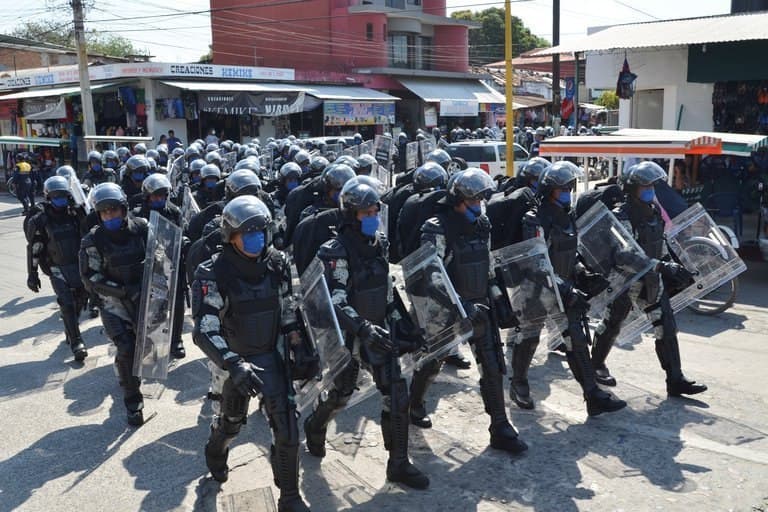
Actualmente, el gobierno de Guatemala mantiene alrededor de 20 retenes en todo el tramo de la frontera El Florido hasta Tecún Umán, donde se encuentran elementos de la policía civil así como también efectivos del ejército guatemalteco para reforzar el bloqueo para lxs migrantes.
“La reacción de los gobiernos es impedir ese tránsito y lo hacen de manera militar, es lo que vemos hoy en día, esa frontera que está del sureste del sureste de México con Guatemala. Es lamentable que haya un retroceso en derechos humanos, que obliga a las personas a continuar en una vida de miseria y a buscar rutas aún más peligrosas”,
RECALCÓ EL INTEGRANTE DEL MOVIMIENTO MIGRANTE MESOAMERICANO.
Cartografía antimigrante
Desde el envío de los cuerpos militares a la frontera sur de México, el gobierno federal en coordinación con funcionarios estatales ha consolidado un esquema de contención contra lxs migrantes procedentes de Centroamérica.
Un mapa elaborado por las investigadoras del Observatorio del Colegio de la Frontera (Colef), Dolores París Pombo y Angélica Zambrano, demuestra una vasta red para la vigilancia, detención y deportación de miles de migrantes quienes han intentado cruzar México con destino a los EEUU. “Los fuertes cinturones de contención migratoria instalados en el sur de México provocan que los migrantes centroamericanos se queden durante meses o años varados en las cercanías de la frontera sur de México”, compartió la investigadora Dolores París Pombo sobre su trabajo cartográfico.
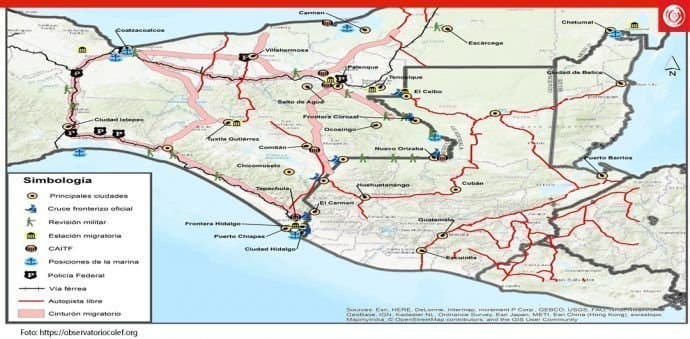
Tambien te puede interesar ⇒ Chiapas: Represión contra protesta de migrantes atrapados en Tapachula
El mapa señala el refuerzo de retenes militares y policiacos en siete cruces fronterizos entre México y Guatemala, donde destacan los ubicados en Puerto Chiapas, Ciudad Hidalgo, Chetumal y Nuevo Orizaba.
Tan sólo en los estados de Chiapas y Oaxaca se han instalado al menos 15 retenes militares a lo largo de las vías del ferrocarril de la “bestia” y en las principales carreteras que conducen al centro y norte de México. Además de que se mantiene la operación de siete retenes migratorios en Chiapas, ubicados en las carreteras con destino hacia Coatzacoalcos, Ixtepec, Villahermosa y Palenque.
Este esquema implementado por el gobierno de la autodenominaba “Cuarta Transformación” representa un blindaje contra el éxodo migrante e incluye también la operación de siete retenes a cargo de la Secretaría de Marina Armada de México, los cuales buscan evitar el uso de las rutas marítimas por parte de lxs migrantes centroamericanos, caribeños, africanos e incluso asiáticos que buscan alcanzar los EEUU.
También te puede interesar ⇒ Centroamérica: el corredor invisibilizado de la migración
Cierre de refugios
El surgimiento de la más reciente caravana migrante solo era cuestión de tiempo. La crisis económica derivada por la pandemia por el Covid-19 en 2020, se sumó a la devastación que dejaron a su paso, tanto el huracán Iota y Eta en noviembre del año pasado, dejó un saldo de 94 muertos y afectó a más de 4 millones de personas en todo Honduras.
Particularmente grave fue la afectación de la zona norte y caribeña del país, donde se concentran las industrias más importantes de su economía. Y es justo en la mayor ciudad de dicha región industrial, San Pedro Sula, desde donde salieron 3,500 personas -y que en su andar llegó aglutinar a más de 9 mil- con dirección hacia los EEUU.
Leer también ⇒ Violencia, despojo, hambre, represión. Honduras y las razones del éxodo migrante; Parte 1
Si el cruce hacia, y a través de México, representa un reto mucho mayor con el despliegue militar en la frontera sur, así como por la violencia de grupos criminales quienes acechan a lxs migrantes, a ello se suma el cierre forzoso de por lo menos 40 albergues debido a la pandemia del Covid-19, según información de Reuters.
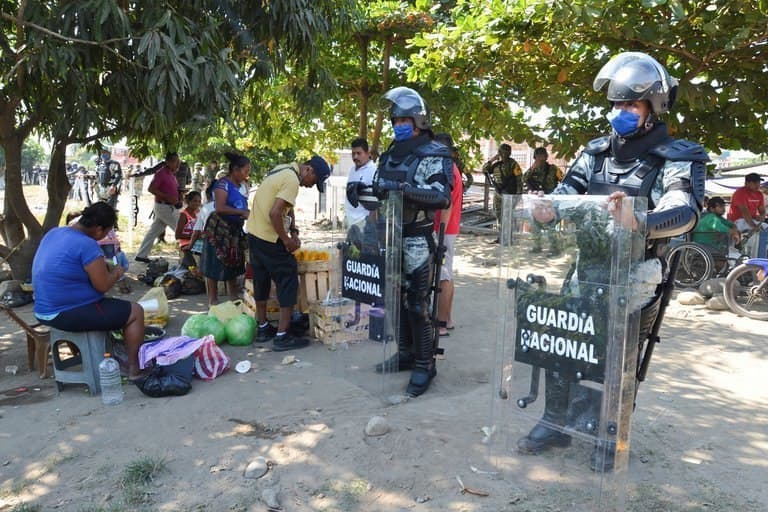
Durante años, dichos espacios han ofrecido refugio a miles de migrantes, quienes viajan hacia el norte de México a pie y cargando pocas pertenencias. Sin embargo, desde marzo de 2020, los albergues han cerrado temporalmente o reducido sus operaciones para impedir la propagación de la COVID-19.
Por citar un ejemplo, la Casa del Migrante de Saltillo, en el estado de Coahuila, al norte del país, dejó de aceptar nuevos migrantes y solicitantes de asilo por un periodo mayor a siete meses.
Para octubre, el refugio reanudó sus labores solo para cerrar nuevamente en diciembre luego de un brote de Covid-19 el cual provocó la muerte al fundador del lugar. Por ello, decenas de migrantes decidieron levantar un campamento fuera del sitio, además de organizar su propia seguridad para evitar las agresiones del crimen organizado presente en la ciudad.
Nuevo acuerdo migratorio México-EEUU
Con la reciente transición en la presidencia de los EEUU, son muchas las expectativas sobre un cambio en las políticas migratorias de Joe Biden, quien ha prometido abandonar los programas “inhumanos y basados en el miedo” implementados durante los últimos cuatro años por la administración de Donald Trump.
Entre las acciones contempladas por el equipo de Biden se prioriza la cancelación del veto de viajes a países musulmanes, así como la puesta en marcha de un equipo para reunir cerca de 600 niños detenidos y separados de sus padres, quienes fueron deportados a Centroamérica, provocando la perdida del vinculo familiar.
Otra de las estrategias anunciadas por la nueva administración buscará aprobar en el Congreso una reforma migratoria para regularizar hasta 11 millones de migrantes quienes viven en EEUU desde hace ocho años y aún no cuentan con documentación que acredite su estancia legal. No obstante, el mismo equipo de Biden no espera que dichos planes sean prioridad de discusión en el Congreso, quien primero deberá debatir un juicio político a Trump.
Por el momento, este miércoles (20), en el primer día de la nueva administración, el Departamento de Seguridad Nacional emitió un memorando en el que ordena la suspensión durante 100 días de las expulsiones de “ciertos no ciudadanos con orden de deportación para asegurar que tenemos un sistema de aplicación de la ley de inmigración justo y eficaz, centrado en la protección de la seguridad nacional, la seguridad fronteriza y la seguridad pública”.
Dicha pausa en el proceso de deportación responde a la necesidad del nuevo gobierno de canalizar los recursos para implementar medidas urgentes y controlar la pandemia del Covid-19 que ya ha causado la muerte a más de 400 mil personas en el país norteamericano.
Aún con las buenas intenciones del nuevo presidente de los EEUU, aún es temprano para anticipar la aprobación de sus propuestas, en un momento en el que el racismo y el discurso antimigrantes en ese país se ha hecho más visible que nunca. Lo que es seguro es que mientras tanto, el trabajo sucio para reprimir y contener al éxodo migrante recae en las fronteras militarizadas de México y cada vez más de Guatemala.
(Español) Paramilitares vuelven atacar a bases zapatistas, denuncian organizaciones
Por Sare Frabes
Foto por Antony Guerra
Las bases de apoyo zapatistas despidieron el año 2020 con ataques constantes de paramilitares que integran la Organización Regional de Cafeticultores de Ocosingo (ORCAO). Así también han recibido el año 2021. Desde el pasado 18 de enero se ha reportado el aumento y agudización de estos ataques armados.
De acuerdo con información que ha recibido el Centro de Derechos Humanos Fray Bartolomé de Las Casas, A.C. (Frayba), “el 18 de enero de 2021, desde las 15h30 hasta las 18h, integrantes de la ORCAO retomaron las agresiones con disparos de armas de fuego contra las casas de la comunidad Moisés Gandhi”, perteneciente a la Junta de Buen Gobierno Patria Nueva, Caracol 10 Floreciendo la semilla rebelde, con sede en el municipio de Ocosingo, Chiapas. Desde el 18 de enero, estas comunidades han contado “alrededor de 170 disparos de calibres grandes y 80 disparos de calibres pequeños”, que han detonado este grupo, según ha denunciado el Frayba.
La organización sostiene que, desde el mes de abril de 2019, la comunidad de Moisés Gandhi ha sido agredida por parte de integrantes de la ORCAO “resultando en destrucción de bienes y agresiones físicas y verbales. Para marzo de 2019, comenzaron agresiones con armas de fuego con dirección a la comunidad. El 22 de agosto de 2020, saqueo e incendio de la bodega de café ubicada en el Centro de Comercio Nuevo Amanecer del Arcoiris en el crucero de Cuxuljá. El 8 de noviembre de 2020, integrantes de la ORCAO secuestran a Félix López Hernández, Base de Apoyo zapatista de la comunidad de Moisés Gandhi, quien fue liberado después de 4 días”, según un boletín que ha emitido el Frayba.
En Chiapas, organizaciones denuncian violencia sistemática y estructural
A finales de diciembre del año 2020 un conjunto de organizaciones de derechos humanos pertenecientes a la Red Nacional de Organismos Civiles de Derechos Humanos Todos los Derechos para Todas y Todos (Red TDT) denunció que estos ataques han sido una “situación de violencia estructural que se permite e, incluso, se fomenta desde los diferentes niveles de gobierno”, sostuvo la red en un comunicado dirigido al gobierno federal de México a finales del 2020.
Las organizaciones conformaron una misión de observación entre los días 7 y 10 de diciembre de 2020 y visitaron las comunidades de Chalchihuitán, Acteal, Aldama, Nuevo San Gregorio, Moisés Gandhi, Chilón y Tonalá. Documentaron diversos testimonios de personas “afectadas por situaciones de desplazamiento forzado, despojo de tierras, detenciones arbitrarias, tortura, hostigamiento, amenazas, criminalización, entre otras agresiones. Por otro lado, también se llevaron a cabo reuniones con autoridades de los tres niveles de gobierno para conocer el seguimiento que están dando a las diferentes problemáticas y casos concretos”, señaló en documento la misión de observación.Por ello, Frayba y la Red TDT hacen un llamado al Estado mexicano para que intervenga de manera inmediata, para que secén las agresiones hacia la comunidad Moisés Gandhi del Municipio Autónomo Lucio Cabañas, “ya que la vida e integridad de las mujeres, niñas, niños y hombres del Pueblo Maya Tseltal se encuentra en riesgo”, según el Boletín del Frayba.






